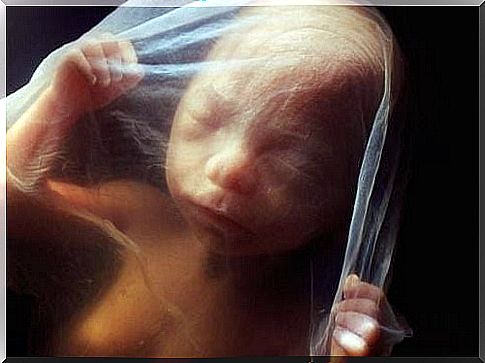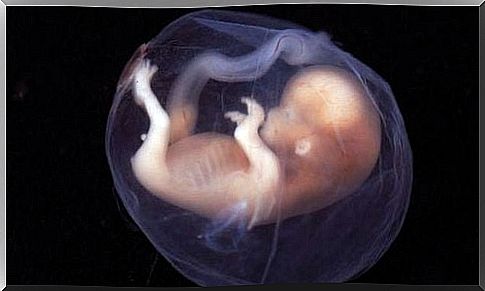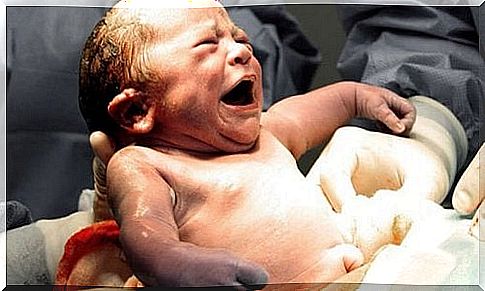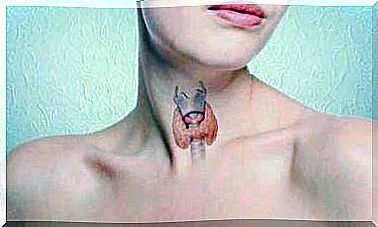Otto Rank’s Theory Of Birth Trauma

Otto Rank, an Austrian psychoanalyst, was the first person to speak about birth trauma. The core of his theory is that birth is the first trauma that people experience. The abrupt separation from the mother and the sudden departure from a protected environment to a hostile world leaves a lasting impression on us.
Otto Rank believed that birth trauma was the first chapter of neurosis. He was convinced that this trauma gives us a decisive place in the human world. This experience imbues us with an essential fear that stays with us for the rest of our lives.
The fact is that babies suffer during birth. Moreover, the concept of birth trauma does not only exist in the field of psychology. It is also present in the medical field. The difference is that doctors in medicine see it from an anatomical and physiological standpoint.
Otto Rank’s theory transcends that idea. He argues that this initial trauma is one of the first factors that determine our psyche and the basis for future anxiety. His ideas are still a source of controversy even today.
The psyche of a fetus
There is a lot of controversy about birth trauma. One of the sources of that controversy has to do with brain development. Some believe that a baby’s brain is underdeveloped to experience birth as a trauma, at least not in the strict sense of the word.
Indeed, the baby experiences pain when it is born. However, many people believe that this suffering does not determine the baby’s future mental health.

However, some studies show some very complex mental phenomena in fetuses. Nilsson, Rottman and Lukesch conducted a study that was particularly interesting.
They studied the life of fetuses in the womb whose mothers actually did not want to become pregnant. They found the babies born to these mothers exhibited the following behaviors:
- The apathetic syndrome: The babies wanted to sleep all the time. They also don’t get very active.
- The hyperactive syndrome: This is the opposite of the apathetic syndrome. These babies get excited easily and cry a lot.
- Abnormal eating habits.
- Excessive vomiting.
The researchers concluded that a mother’s womb is not a neutral paradise. After all, the fetus can sense the physiological changes in its mother. All this also has consequences for the future behavior of the baby.
The birth trauma
Otto Rank believed that birth trauma is the origin of anxiety. Also remember that the word “fear” comes from the Latin word “angere.” This means to choke or strangle. The first battle in a person’s life is moving through the narrow birth canal. It pinches and chokes the baby coming through this channel.
Some researchers also believe that a person will experience feelings similar to those experienced at birth if he or she has experienced severe birth trauma.
Examples include an unexplained tachycardia, a headache that feels like excessive pressure on the skull, a feeling of drowning or suffocation, and so on. These are all physical symptoms of a panic attack.

Otto Rank has also described a strong emotional component of birth trauma: the separation of mother and child. As a result, the birth trauma is not only limited to physical sensations.
It also means the loss of the ideal state. According to Rank, this experience has a serious impact. He argues that it makes us especially sensitive to all forms of loss.
Birth trauma controversy
The birth trauma theory has created one of the greatest divisions in the history of psychoanalysis. Otto Rank was one of Freud’s students. His thesis, however, posed a challenge to the central content of Freud’s Oedipus complex. This theoretical disagreement would eventually cause irreparable damage to their relationship.
Otto Rank’s birth trauma theory is not widely known. Yet a significant number of psychoanalysts, psychologists and physicians accept his ideas. Some who endorse his work actually believe that going through therapy is like being born again. According to them, it is an opportunity to overcome the first trauma of your life.

Freud’s theory is clearly more grounded than Rank’s ideas about birth trauma. However, we now know more about life before birth and about a baby’s first few months after birth.
For example, what we now know is that a baby’s experiences during that period leave lasting impressions, even though their nervous system is not yet fully developed. These experiences have an influence on the human experience. After all, they have an impact on who we are and what we do with our lives.









